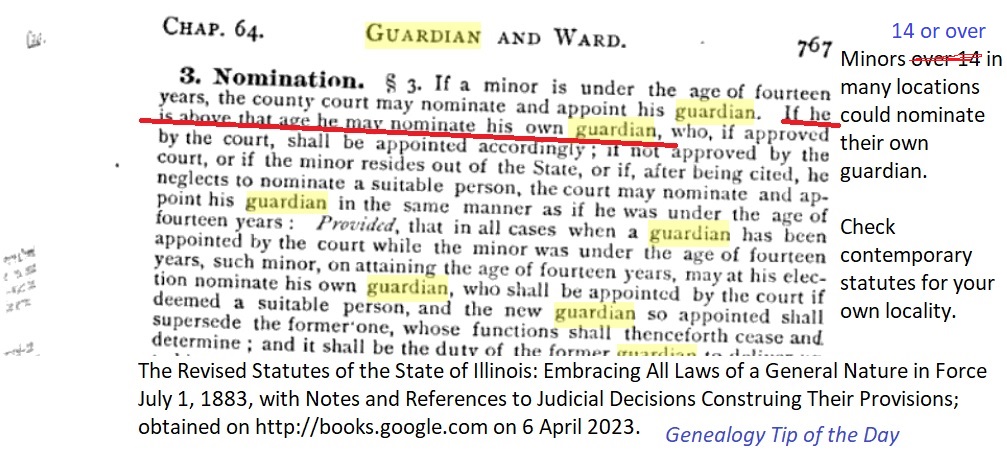In many locations, minors who 14 years of age and over and needed a legal guardian could nominate one to the court. The nomination would have to be approved by the court and contemporary state statue would have dictated the legal requirements for being a guardian–generally that’s someone of the age of majority at the time, of sound mind, and generally perceived to be responsible by the court.

Contemporary state statute would also dictate the age at which someone was a legal adult–for much of US history that’s been 18 for a female and 21 for a male. Many state statutes are available digitally online and a search for them can be started in this list of links at the Advancing Genealogist.
Do not assume both parents were deceased if someone has a legal guardian appointed. If the father is deceased and the mother is not dead, a guardian may have been appointed to oversee the child’s interest in the father’s estate and not have physical custody of the child–particularly during times when women had fewer legal rights.







2 Responses
I think you meant to say when the mother is NOT dead. Women were so incompetent they were not able to care for a child/children and/or property without a man around.
That is exactly what I meant to say and I have fixed it. I do have a few female ancestors who were appointed as guardians of their children after the father died, but that is not typical.